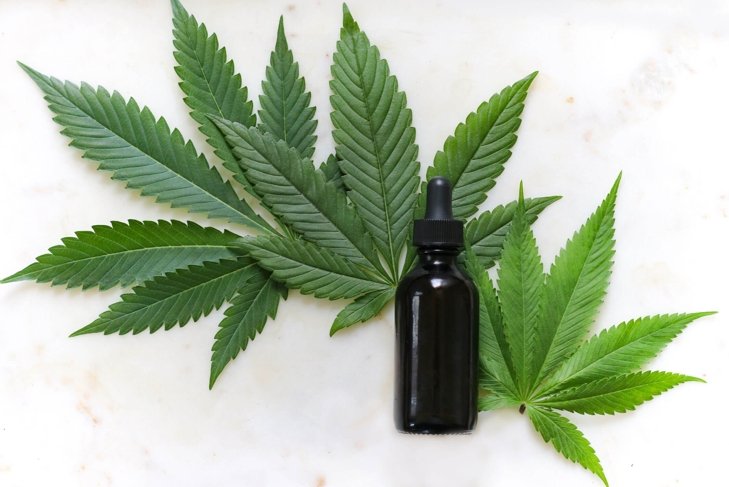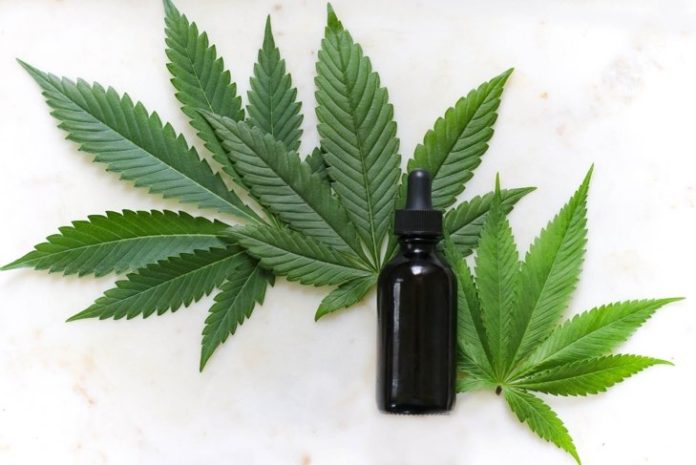
Everyone has a stake in good gut health—whether you deal with occasional gas and bloating or a more severe condition like IBD. The good news? Sweet relief could be just around the corner. Research is showing that CBD may help resolve the inflammation and imbalances at the root of digestive distress.
At one time or another, everyone has experienced the kind of tummy troubles—gas, bloating, diarrhea, constipation—that make you want to retreat into the bathroom and not emerge until they’ve passed. For some, serious conditions like inflammatory bowel disease (IBD) make that rush to the toilet an unpleasant fact of daily life.
The next frontier in relief for a range of bowel problems may come from a surprising source: hemp. Research is showing that cannabidiol (CBD), which is widely available in hemp-derived CBD oil, has numerous benefits for your gastrointestinal tract that may be helpful not only for maintaining optimum gut health, but also for managing severe bowel disorders.
The ECS connection
CBD shows promise for flushing away tummy troubles because it acts on your body’s endocannabinoid system (ECS), which involves a network of microscopic receptors on cell membranes throughout the body. The ECS regulates nearly all metabolic processes. While your body produces its own endocannabinoids like anandamide (aka the “bliss molecule”), which bind to ECS receptors, CBD indirectly influences the receptors.
The ECS has two primary cannabinoid receptors: CB1 and CB2 receptors. “CB1 receptors are dominantly found in the brain and central nervous system, while CB2 receptors are most dominantly found in the gut,” explains Jason Mitchell, ND, a member of the American Naturopathic Medical Association. “The dominance of CB2 in the gut reveals an interesting connection between the ECS and gut health.”
Indeed, an emerging body of research suggests the ECS plays a central role in tamping down inflammation in the gut, as well as controlling a variety of gastrointestinal functions, including bacterial balance, gut permeability, and motility. And yep, you guessed it: These functions are the foundation of good gut health.
Putting out the flames
Inflammation in your gut can have many causes, from poor diet to food allergies. In the case of IBD—an umbrella term that includes ulcerative colitis and Crohn’s disease—the immune system appears to incorrectly attack the body’s own digestive system cells. The digestive tract lining becomes chronically inflamed, causing persistent and sometimes bloody diarrhea, abdominal pain, fatigue, and even weight loss.
Research shows CBD may help to douse that four-alarm fire. In a study of intestinal cells taken from patients with ulcerative colitis, CBD decreased inflammation by suppressing the expression of S100B, a protein whose overexpression leads to persistent inflammation in the gut.
In addition, CBD may quell inflammation by decreasing the amount of an enzyme called MPO that white blood cells produce to kill “alien” substances they find roaming inside the body. CBD also frees up more anandamide—which has been shown in studies to reduce gut inflammation—by checking the activity of the FAAH enzyme (which breaks down anandamide).
Keeping belly balance
Your gut is normally home to trillions of bacteria, but when bad bugs gain a foothold and outnumber the good guys, you wind up with dysbiosis, which can lead to symptoms like gas, bloating, and diarrhea. Dysbiosis can also be a factor in the development of IBD.
Probiotics, which are friendly bacteria, work by defeating the bad actors and restoring microbial balance. And research now suggests that CBD may also help maintain balance in the gut’s bacterial community by preventing dysbiosis and promoting healthy gut bacteria. That’s because the ECS interacts dynamically with your belly bugs.
Fixing any leaks
Your intestines have two simultaneous functions: to absorb nutrients from the foods you eat while serving as a barrier that keeps things your body wants to reject, like undigested food particles and toxins, from passing into your bloodstream.
“The gut is a big permeability machine,” says British researcher Daniel Couch, PhD, the medical lead at the Centre for Medicinal Cannabis, which advances patient access to medicinal cannabis in the UK. “It has to generate an immune response to bugs and viruses, but at the same time absorb things without getting into a state of inflammation.”
In some people, the intestinal wall develops increased permeability (a condition also known as “leaky gut”), which means bacteria and toxins can sneak through the intestinal wall, causing symptoms like bloating and fatigue. Research suggests that leaky gut also plays a role in IBD.
Couch’s research shows that CBD may have the ability to protect the lining of the gut against increased permeability, and multiple studies have confirmed the role of the ECS in regulating the integrity of the intestinal barrier.
Moving at the right pace
Another key aspect of gut health is intestinal motility (i.e., peristalsis, or the movement of matter through the digestive system). When things move too quickly, you wind up with diarrhea. If they move too slowly, you’re stuck with constipation.
Irritable bowel syndrome (IBS) is one of the most common functional digestive disorders. It involves problems with intestinal motility, along with pain and irregular bowel movements.
The ECS has an important role in reining in IBS, and endocannabinoids have been shown in some studies to act as a “tonic” on intestinal motility. So it’s perhaps not surprising that researchers are now finding that CBD may relieve motility that’s way too fast.
Though there’s still a lot we don’t know about the role that CBD can play in supporting gut health, and more research is needed, early results are certainly promising. Maybe, just maybe, the “green rush” of hemp-derived CBD products will help keep that dreaded rush to the bathroom at bay.
Natural inflam fighters for IBD
These supplements could help cool the fire in your gut naturally.
Probiotics: Friendly bacteria (probiotics) support gut health in many ways, including by helping to regulate the body’s inflammation response. Researchers studying IBD at Houston Methodist Hospital have found that the makeup of gut bacteria and the way these bacteria interact with the immune system can lead to the development of IBD. Probiotics seem to be most effective when taken early on and to maintain remission of mild forms of ulcerative colitis.
Curcumin: This compound gives turmeric its golden color and tamps down inflammation in people with IBD. In a small study of five patients with ulcerative colitis, 550 mg of curcumin twice daily for a month followed by three times a day for another month significantly reduced symptoms and cut inflammatory markers. In a study on five patients with Crohn’s disease, 360 mg thrice daily for a month and four times daily for two more months resulted in an “evident reduction” of Crohn’s disease activity.
Boswellia serrata: It’s more commonly known as Indian frankincense, and it inhibits the action of an enzyme called 5-lipoxygenase. This enzyme is a key part of the inflammation process, especially in gut-related concerns. One recent review of studies noted boswellia was one of the few supplements with “clear benefits” for Crohn’s disease in multiple studies. A couple studies show boswellia’s primary benefit is helping to maintain remission in Crohn’s.
If you’ve switched to a vegan diet only to find that plants are feeling more like wild animals in your belly, don’t give up! Sometimes dietary change is like going to the gym—you just need to build up your digestive strength.



